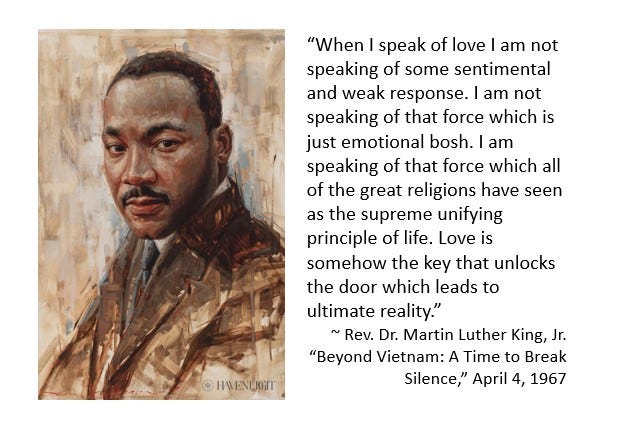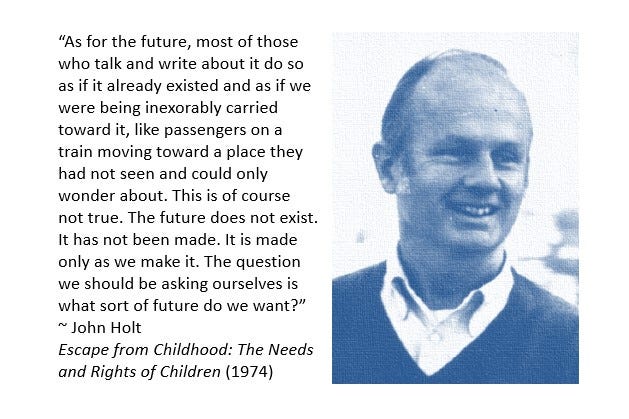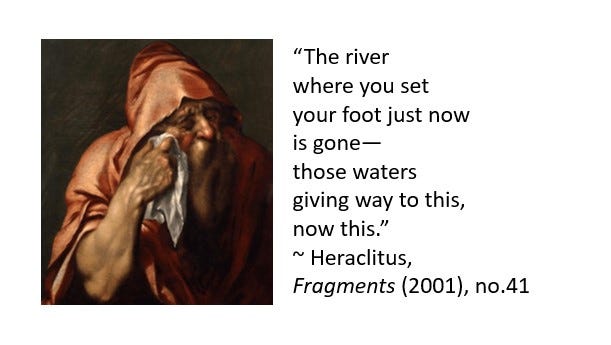Humanities and Social Change: There is No Final Revolution
How the Humanities Can Sustain Efforts at Social Change
Our society tends to encourage us to concentrate on the mechanics of achieving our objectives. From this perspective, all we really need is political science to help us identify the right strategies and techniques to achieve our goals of fostering a more just society.
Comparatively little time is spent thinking about how to stimulate and sustain the creativity, empathy, perseverance, and the sense of purpose needed to face inherently bad odds and be part of a social movement for progress and human dignity. I believe the humanities, though they are often diminished as impractical, offer veteran agents of change and would-be change agents invaluable resources to meet these broader human needs.
Independent journalist and co-creator of Don't Look Up (2021), David Sirota shared that he sometimes struggles with believing his efforts at social change are meaningful. “On my good days,” he posted in a social media post, “I think the work matters. On my bad days, I think we're all just spamming the Internet while billionaires & politicians laugh and the ecosystem collapses. The trick is to have an internal monologue saying the former not the latter—a trick I haven't mastered.”
These feelings are familiar to many engaged in social justice activism. This was clear enough in the comment section of Sirota’s post where many wrote that his words resonated with them. I often hear similar sentiments from those in audiences of my talks. After speaking on Rev. Dr. Martin Luther King Jr.'s “Other Dream” of remedying economic injustice, in January 2023, a sympathetic listener shared his feelings of frustration and defeatism with the direction of U.S. politics in the 21st century. He felt that many of the problems people like him had worked to resolve had gotten worse over the decades.
We might respond to these expressions by pointing to all the good that has been achieved over the years. We might call for a spirit of optimism and emphasis on silver linings. But its worth acknowledging that feelings of frustration, despair, and futility are inescapable features of the human condition. The persistence of these elements of our humanity further remind us of how vital the humanities are to spiritually or ethically sustain us when having understandable feelings of doubt and despair.
How can we not be dismayed when the Bulletin of the Atomic Scientists puts the Doomsday Clock 90 seconds before midnight, a metaphorical representation of the increased risks we face of nuclear conflict and civilization-threatening catastrophe? When Oxfam International shows us that economic injustice is rapidly increasing, with the richest one-percent of the population taking nearly twice as much wealth, between 2020 and 2022, as the rest of the world? Or when climate scientists tell us we are failing to take the necessary steps to avert climate catastrophe that might well spell an end to human civilization? And this is to say nothing of instances of abuses of power, threats to democracy, denial of civil liberties, and other concerns too numerous to list.
Yet we would be mistaken to think of ourselves as living in uniquely perilous times. The change agents who came before us also faced bleak odds as they combated a precarious world fraught with many forms of oppression and conflict. This is why we should remember that many of the pioneers of social transformation were steeped in great works of literature, philosophy, the arts, and religion. Rev. King, for one, consistently drew on ideas, thinkers, and cultural knowledge from human history to give meaning to his strivings for social change, recognizing that all of his goals would not be achieved in his lifetime.
King continuously reminded himself and his listeners that his love humanity motivated and gave meaning to his often insufficient efforts to combat racism, militarism, and economic exploitation. On April 4, 1967 speech, “Beyond Vietnam: A Time to Break Silence,” King said:
“When I speak of love I am not speaking of some sentimental and weak response. I am not speaking of that force which is just emotional bosh. I am speaking of that force which all of the great religions have seen as the supreme unifying principle of life. Love is somehow the key that unlocks the door which leads to ultimate reality.”
This love ethic was not merely a strategic or rhetorical tool. Agapic or “brotherly” love was the cause of his efforts to achieve specific policy objectives such as a living wage and guaranteeing an annual income for all citizens. It gave even his failed efforts meaning and spiritually sustained him through the greatest difficulties and dangers.
…we should be careful not to get lost in the granular details of current events such that we lose touch with our larger purpose and permit the dulling of the very imaginative thinking needed to foster transformation.
Contemporary activist movements in the United States lack the spiritual-ethical-humanistic dimension necessary to sustain people through predictable feelings of dejection as they painfully crash against the hard, dense wall of an entrenched status-quo. The humanities, unleashed of rigid academic confinement, offer us existential perspective and spiritual-ethical insights necessary to combat the kinds of despair Sirota and so many others sometimes feel. Below are a series of suggestions for how change agents, from the individual citizen to the leader of an advocacy group, might utilize the humanities to sustain their arduous vocation.
#1: Step Out of the 24-hour News Cycle and into the Humanities
First, we should engage with great works and thinkers throughout the ages, stepping out of the 24-hour news cycle to gain greater context for our lives and personal and political projects. Henry David Thoreau was particularly critical of excessive attention to the news of the day, pointing out that it drew our attention from inner knowledge and a broader understanding of life and existence.
This is not to say that we should embrace ignorance and apathy concerning climate catastrophe, the threat of nuclear war, growing economic inequality, police violence, dehumanizing prison conditions, and the many other pressing matters of our day. But we should be careful not to get lost in the granular details of current events such that we lose touch with our larger purpose and permit the dulling of the very imaginative thinking needed to foster transformation.
We ought to trust the powers of human agency more than the powers of human prophecy.
Part of the problem is that many of the new and old media pundits we rely upon lack the cultural knowledge and humanistic vision necessary to sustain creativity of thought and action. Their world is confined to headline news and election cycles. Their narrow study of the “weather” of human behavior prevents them from grasping the unwieldly, dynamic “climate” of human existence, evidenced throughout history. Their analyses manufacture more than they truly predict because we allow them to ideologically frame our choices and their meaning.
Too many of those who speak most decisively about what is “possible” rely dogmatically upon the present and the past, as if ignorant of the fact all progress is born in defiance of today’s status-quo. We ought to trust the powers of human agency more than the powers of human prophecy. As the pioneering children’s rights advocate, John Holt wrote in his audacious book, Escape from Childhood: The Needs and Rights of Children (1974):
“As for the future, most of those who talk and write about it do so as if it already existed and as if we were being inexorably carried toward it, like passengers on a train moving toward a place they had not seen and could only wonder about. This is of course not true. The future does not exist. It has not been made. It is made only as we make it. The question we should be asking ourselves is what sort of future do we want?”
Making time to put aside news of the day for encounters with world history, philosophical inquiry, imaginative literary works, the performing arts, or spiritual-religious meditations widen our conception of what is possible and what has meaning. These humanistic undertakings also nourish the very spirit necessary to retain our sensitivity to suffering in the world and appreciation for the good that strangely coexists with the bad.
#2: Recognize the Impermanence of All Victories
The humanities also open us to the importance of replacing the pursuit of “victory” with something more sustainable and realizable—perhaps also more human. The humanities humbly remind us that victories in the social-political arena are impermanent. Even if we were to succeed in achieving a particular political-social objective, we would soon find ourselves having to roll that same bolder up the mountain once again.
The ancient Greek philosopher, Heraclitus, identified fire and the paradoxical consistency of change as the only constant in our world. A quote attributed to him states, “The river where you set your foot just now is gone—those waters giving way to this, now this.”
Life defies stasis; thus we are called to renew and maintain even those achievements of the past. This is true not only of social progress but, more generally, of knowledge. Both John Stuart Mill and Albert Einstein explained that advances in human knowledge cannot be maintained without constant renewal. To renew knowledge requires us to embrace freedom of thought and expression, to include the critical interrogation of precisely those ideas we most favor and believe are most important and true.
I have always appreciated the ground-breaking dystopian novel, We (1924), precisely because of its emphasis on the dynamic and relentless flux of human existence. We was written by engineer and author, Yevgeny Zamyatin, more than 30-years before George Orwell’s 1984 (1949) and nearly a decade before Aldous Huxley's Brave New World (1932).
Zamyatin’s We: Rejecting the End of History
We tells the story of a totalitarian society, set in the future around 3,000 CE, ruled by the “One State.” Individual liberty and individuality has been sacrificed to eliminate suffering and social conflict. Each member of the society is assigned a number for a name. Smoking and drinking have been criminalized and dreaming itself is treated as evidence of mental disease. Everyone wears the same style uniform and personal privacy has been eliminated. Apartments are made out of transparent glass to ensure constant surveillance by the larger community and the state’s secret police, “The Guardians.”
The state regulates all aspects of human life, with eating, sleeping, socializing, and even sexual intimacy permitted only during scheduled times of the day. Citizens wear badges with built in clocks to ensure they are persistently conscious of the time and, thus, their obligations to the state. Ceremonial elections are held on “Unanimity Day,” when everyone votes to re-elect the “Benefactor.”
The dynamism of the universe is mirrored in human existence and experience. There is no “end of history” unless we believe the ideological lie of the divinity of the present, the status-quo.
Contemporary author Margaret Atwood first read We in the 1990s, after writing The Handmaid’s Tale (1985). She writes that We anticipated many disturbing developments that would come in not only the 20th but also 21st centuries:
“the attempt to abolish the individual by merging all citizens with the state; the surveillance of almost every act and thought… the ‘liquidation’ of dissenters…as those to be liquidated are in fact transformed into liquid; the erection of a border wall that serves not just to prevent invasion but to keep citizens inside; the creation of a larger-than-life, all-knowing, all-wise Big Brotherish Benefactor who may be simply an image or a simulacrum – all these details foreshadowed things to come.
“So did the use of letters and numbers rather than names: Hitler’s extermination camps had not yet engraved numbers on their inhabitants, and we of this age had not yet become the fodder for algorithms. Stalin had yet to forge the cult of his own personality, the Berlin Wall was decades in the future, electronic bugging had not been developed, Stalin’s show trials and mass purges would not take place for a decade – yet here is the general plan of later dictatorships and surveillance capitalisms, laid out in We as if in a blueprint.”
Atwood contends that We speaks to those of us in the presently wrestling with the balance between individual freedoms—including a robust freedom of expression—and our role as members of a community.
We is told from the perspective of diary-like entries by the engineer and mathematician, D-503. He is one of the builders of the “Integral,” a spaceship purposed to expand the reach of the state and enlarge its “utopia.” At the outset, D-503 believes the One State is the product of the last great social revolution, and that the elimination of independent thought and action is for the greater good of society. His belief in the One State’s utopia is undermined when he begins to fall in love with I-330, a free-spirited, cigarette-smoking, alcohol-drinking revolutionary. Her kiss causes him to recognize suppressed insights and embark on a treacherous journey to self-knowledge and political liberation.
D-503 describes his awakening, through I-330, this way:
“It has never occurred to me before, but this is truly how it is: all of us on earth walk constantly over a seething, scarlet sea of flame, hidden below, in the belly of the earth. We never think of it. But what if the thin crust under our feet should turn into glass and we should suddenly see…
“I became glass. I saw—within myself.”
Here we are reminded of the centrality of love in our efforts. Personal transformation and social change are not solely inspired by logic and linear sequential development. Love is more than one of the great ends motivating genuine social progress; it is also a warm and powerful means of melting through cold, hard irrational ideologies and arousing one another from our dogmatic slumber. Through principled and loving dialogue, the kind that honors the humanity of each side even as it vigorously disputes the beliefs under examination, we stand a chance at facilitating the kind of self-knowledge from which visionary change grows.
I-330 challenges D-503 to see the error of believing in the finality of social change. And it is here that Zamyatin’s novel offers what may be its most perspicacious insight; an insight that speaks not merely to the fear we will fail in fostering change, but also the life-defying arrogance of believing that anyone’s efforts could ever result in permanent change. I-330 asks D-503, “name me the final number.”
“What do you mean? I…I don’t understand: what final number?”
“Well, the final, the ultimate, the largest.”
“But that’s preposterous! If the number of numbers is infinite, how can there be a final number?
“Then how can there be a final revolution? There is no final one; revolutions are infinite.”
Zamyatin succinctly expressed this very idea in his non-fiction essay, “On Literature, Revolution, Entropy, and Other Matters.”
“Revolution is everywhere, in everything. it is infinite: there is no final revolution, no final number.”
So long as there is life, there is also the chance—the likelihood—of change, be it of a better or worse kind. The belief in finality is a denial of the living and an embrace of the dead. This is clear enough from our own basic experience in relationships with other people. The moment we decide that effort is no longer required to “maintain” that relationship is also, coincidentally, the moment when that relationship begins its decline. The same is true of knowledge.
The dynamism of the universe is mirrored in human existence and experience. There is no “end of history” unless we believe the ideological lie of the divinity of the present, the status-quo. This does not prove that our efforts to combat today’s injustice are guaranteed success. We are not justified in being dogmatic optimists. But the dynamism of our humanity does promise us a chance to succeed. And this is a chance we ought to take. The future will be decided by those who care enough to commit their lives to their principles, and believe their choices have the potential to remake the world.
Please share and like this post by clicking the heart icon.
Invite Dr. Nall to Speak
Dr. Nall delivers energetic live presentations and engaging workshops on the subjects featured in Humanities in Revolt. Those interested in booking a workshop or talk can get in touch through Facebook or by leaving a comment.
For more about my work go to JeffreyNall.com and find me on Twitter, Facebook, and Instagram.










